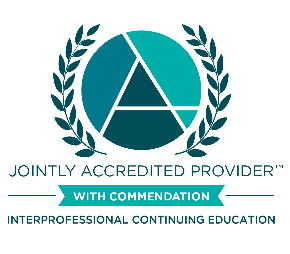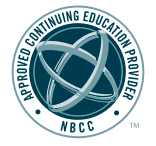A Resource for Healthcare and Social Services Professionals
September 13, 2023
2:00 pm–3:00 pm ET
This training will focus on identifying types of self-help and community-based recovery support groups. We will explore the known efficacy behind many of the models while also recognizing the unique principles they follow as they build recovery support. Additionally, individuals who facilitate and/or have accessed recovery support groups themselves will speak about their experience, with the goal of helping attendees understand these resources and improve care teams’ knowledge of recovery support groups to better link individuals in recovery to appropriate sober social support networks.
Via Zoom
The Recovery Month Series is comprised of four educational sessions for healthcare providers and substance use disorder (SUD) treatment programs seeking to better understand how we can support individuals and caregivers in recovery. Utilizing both panel and didactic discussions, we will explore the uniqueness of one’s recovery journey and experiences to better support those in recovery and those with lived experiences. We will also promote a variety of supports for individuals working to build their recovery capital and unpack the unique needs of caregivers and those parenting in recovery. Each session will be an hour-long didactic or panel discussion facilitated by a Grayken TTA educator and experts with lived experience in the specific topic area.
This training will focus on identifying types of self-help and community-based recovery support groups. We will explore the known efficacy behind many of the models while also recognizing the unique principles they follow as they build recovery support. Additionally, individuals who facilitate and/or have accessed recovery support groups themselves will speak about their experience, with the goal of helping attendees understand these resources and improve care teams’ knowledge of recovery support groups to better link individuals in recovery to appropriate sober social support networks.
Please read the Accreditation Information section of this page to learn about the requirements for receiving credit or a certificate of completion.
Medical providers, nurses, social workers, Licensed Alcohol and Drug Counselors (LADC), Certified Alcohol/Drug Counselors (CADC), Community Health Workers (CHW), recovery coaches, counselors, Licensed Mental health Counselors (LMHC), and members of the community.
Brittany (Britt) is a clinical nurse educator for Boston Medical Center's Grayken Center for Addiction Training and Technical Assistance. After starting her professional career at Boston Medical Center, she is thrilled to return to her roots supporting patients with substance use and caring for adolescent patients. She is a doctorally prepared, board-certified family nurse practitioner. Her passion is caring for youth and families, especially those with substance use disorder. Her clinical interests include adolescents/young adults, co-occurring mental health disorders, optimizing safety/overdose prevention, and improving continuity of care among DCF/DYS-involved youth. She has over a decade of experience working in addiction medicine from clinical operations to education/training. She pursued her DNP degree to continue to work to bring best practices into clinical care. Britt has published on various topics, including stigma for youth, caring for adolescents with substance use disorders and the role of addiction training for providers. She has also co-authored a book chapter on caring for adolescents with substance use. She is a member of Sigma Theta Tau International and AMERSA (The Association for Multidisciplinary Education and Research in Substance use and Addiction). She received her Doctor in Nursing Practice (DNP) and Master's in Nursing degrees from the University of Massachusetts, Graduate School of Nursing. She also has a Master's in Medical Science from Boston University Chobanian & Avedisian School of Medicine.
Following this training, participants will be able to:
Boston Medical Center Grayken Center for Addiction TTA, Massachusetts Department of Public Health, Bureau of Substance Addiction Services (DPH/BSAS).
Funding for out of state attendees is provided by the Opioid Response Network (ORN).
Funding for this initiative was made possible (in part) by grant no. 1H79TI083343 from SAMHSA. The views expressed in written conference materials or publications and by speakers and moderators do not necessarily reflect the official policies of the Department of Health and Human Services; nor does mention of trade names, commercial practices, or organizations imply endorsement by the U.S. Government.
REQUIREMENTS for credit
Please note this policy is strictly enforced for accreditation purposes. Participants will forfeit collection of credit and certificates of completion if more than 10 minutes of the training is missed.
CME
 In support of improving patient care, Boston University Chobanian & Avedisian School of Medicine is jointly accredited by the Accreditation Council for Continuing Medical Education (ACCME), the Accreditation Council for Pharmacy Education (ACPE), and the American Nurses Credentialing Center (ANCC), to provide continuing education for the healthcare team.
In support of improving patient care, Boston University Chobanian & Avedisian School of Medicine is jointly accredited by the Accreditation Council for Continuing Medical Education (ACCME), the Accreditation Council for Pharmacy Education (ACPE), and the American Nurses Credentialing Center (ANCC), to provide continuing education for the healthcare team.
Boston University Chobanian & Avedisian School of Medicine designates this live activity for a maximum of 1.00 AMA PRA Category 1 Credit(s)™. Physicians should claim only the credit commensurate with the extent of their participation in the activity.
Nursing
Boston Medical Center is approved as a provider of nursing continuing professional development by the American Nurses Association Massachusetts, an accredited approver by the American Nurses Credentialing Center’s Commission on Accreditation. Participants who complete and return the evaluation and stay for the entire session will be awarded 1.00 contact hours.
Social Work
As a Jointly Accredited Organization, Boston University Chobanian & Avedisian School of Medicine is approved to offer social work continuing education by the Association of Social Work Boards (ASWB) Approved Continuing Education (ACE) program. Organizations, not individual courses, are approved under this program. Regulatory boards are the final authority on courses accepted for continuing education credit. Social workers completing this course receive 1.00 general continuing education credits.
LMHC
 BMC Grayken Center of Addiction TTA has been approved by NBCC as an Approved Continuing Education Provider, ACEP No. 7188. Programs that do not qualify for NBCC credit are clearly identified. BMC Grayken Center of Addiction TTA is solely responsible for all aspects of the programs. For this program, 1.00 contact hours will be offered to participants who attend the training and complete the evaluation.
BMC Grayken Center of Addiction TTA has been approved by NBCC as an Approved Continuing Education Provider, ACEP No. 7188. Programs that do not qualify for NBCC credit are clearly identified. BMC Grayken Center of Addiction TTA is solely responsible for all aspects of the programs. For this program, 1.00 contact hours will be offered to participants who attend the training and complete the evaluation.
LADC/CADC & Recovery Coach
Grayken Center for Addiction TTA is approved to offer LADC/CADCs and recovery coaches who complete this course 1.00 general continuing education credits.
Disclaimer
Continuing education (CE) requirements vary by license and jurisdiction. When requesting continuing education credits, please ensure you are following the rules and regulations determined by the board regulating your license. Boston Medical Center Grayken Center for Addiction TTA does not oversee adherence to licensing requirements and regulations.